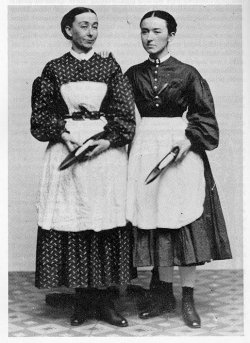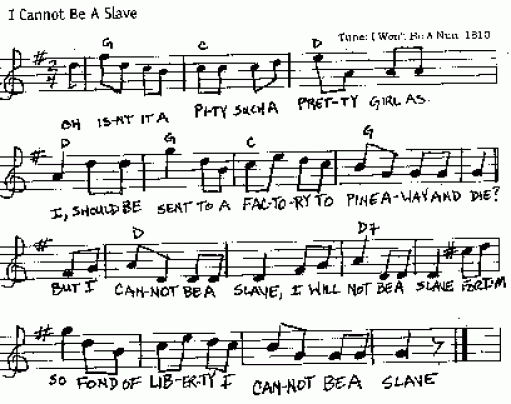Reaction in Labor
Because women had never before worked in public places, the employers in the Lowell mills did not feel the need to treat the mill girls well. They knew that these women had no other chance to get a job because no one else hired women.

Shuttles were a common tool in the mills
· Mill owners did not pay mill girls well and made them work extremely long days. This reaction because women knew if they quit, no one else would hire them.
· Women who worked at mills felt mill owners getting greedy and trying to take away women's freedom and equality
· "At first, distrust and dissatisfaction between workers and mill agents revolved around the issue of cuts in pay. The agents and mill owners tried, in vain, to argue that business conditions had forced them to make pay cuts. The women, however, noting that the price of cloth had not fallen, quickly dismissed this argument." (Rivard 112)
· "To the workers, cuts in pay were the clear result of avarice by the owners." (Rivard 112)
· "A system of hourly wages was created in the mills that altered the relationship between employer and employee and threatened to upset worker independence and equality. The women of Lowell, as they reminded their employers, were 'the daughters of freemen'." (Rivard 112)
· Losing newfound freedom made mill girls very upset. They did not go all the way to the mills to gain freedom then lose it.
· "Coming to the mill cities from the hard-scrabble farms of northern New England, workers brought with them an idealized vision of America: a classless society without the hierarchy of aristocracy." (Rivard 112)
· "…manufacturers were becoming the nobility of America, diminishing the promise of the Declaration of Independence." (Rivard 112)
· "The relationship between the mills' investors and the workers was forever altered by labor conflicts. The era of good feelings and common interest between employers and employees in Lowell had lasted barely a decade."
(Rivard 112)
· Women who worked at mills felt mill owners getting greedy and trying to take away women's freedom and equality
· "At first, distrust and dissatisfaction between workers and mill agents revolved around the issue of cuts in pay. The agents and mill owners tried, in vain, to argue that business conditions had forced them to make pay cuts. The women, however, noting that the price of cloth had not fallen, quickly dismissed this argument." (Rivard 112)
· "To the workers, cuts in pay were the clear result of avarice by the owners." (Rivard 112)
· "A system of hourly wages was created in the mills that altered the relationship between employer and employee and threatened to upset worker independence and equality. The women of Lowell, as they reminded their employers, were 'the daughters of freemen'." (Rivard 112)
· Losing newfound freedom made mill girls very upset. They did not go all the way to the mills to gain freedom then lose it.
· "Coming to the mill cities from the hard-scrabble farms of northern New England, workers brought with them an idealized vision of America: a classless society without the hierarchy of aristocracy." (Rivard 112)
· "…manufacturers were becoming the nobility of America, diminishing the promise of the Declaration of Independence." (Rivard 112)
· "The relationship between the mills' investors and the workers was forever altered by labor conflicts. The era of good feelings and common interest between employers and employees in Lowell had lasted barely a decade."
(Rivard 112)

